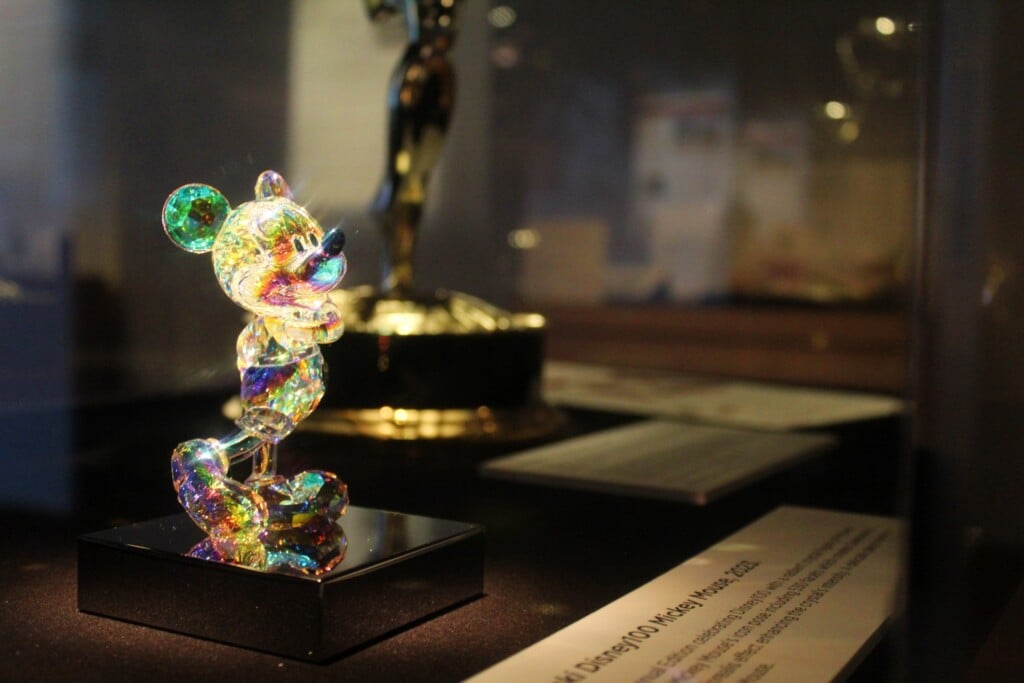Back Stab
Back in my grad-school days, a friend complained about the gutting one of her short stories had suffered at the hands of a man we’ll call August Professor Whose Books Are All Out of Print. She’d attempted something wild with the piece, assigning a fetus the role of narrator, and the results had been dismal. When August Professor laid into her with his usual sulfurous delight, she snapped back, “I took a risk. We should feel safe to take risks in art.”
August Professor sniffed at that, and the next week distributed definitions, photocopied from a half-dozen different dictionaries, of the word risk.
His point — that to create, chances must be taken, but that these chances also must pay off — was bitchy but accurate. It’s a lesson I’ve learned again and again, most recently at Down Every Street’s production of Harold Pinter’s Betrayal.
The play is a chilly variation on the three-way love tussle, this time set among that anxious East Coast smart set familiar from the countless plays and novels its constituents have whipped up to catalog their ennui and adultery. Emma is married to Robert but sleeps with Robert’s dear friend Jerry; Robert, meanwhile, takes his own lovers. The primary interest is that Pinter tells it backward: We start with an awkward reunion of exes, then step back to the breakup, then to thee adultery before finally sinking to one of the ugliest come-ons in modern theater.
The reverse chronology freshens things. Infidelity Among Intellectuals is now its own genre, with rules as rigid as those governing Greek tragedy or the average sitcom. Out with the gods and the laugh tracks, in with the name-dropped poets and Nietzschean justifications of self. Usually, once the liaisons get going, we’re meant to mull the chicken-and-egg problem presented by said ennui and adultery: Are these people miserable because they have these affairs, or do they have these affairs because they’re miserable? Often, the answer is neither. Characters like these ache and cheat because authors mistake melancholy self-indulgence for universal truth.
Pinter falls for none of that. The script is an inquest into how we lie to ourselves and those we love. Backward storytelling is a risk that works; unfortunately, Down Every Street’s production takes a big risk that doesn’t.
But it might yet. First, some full-disclosure stuff: The show is directed by Beatte Pettigrew, from whom I once took a class, and it’s at Johnson County Community College, a school that (a) employs me and (b) looks like what you’d get if a parking lot could vomit buildings.
Because Down Every Street triumphed last year with Tape, I gave it the benefit of the doubt when I heard that this would be a “splash” production — to achieve rawness, the actors have not all rehearsed the material together, and new cast members rotate in as the run continues. Even ten minutes in, it seemed a fine idea. Playing lovers who haven’t seen each other in years, Joe Clark and Charlene Bricco were forced to negotiate their intimacy right before us in real time.
Those first scenes are concerned with people figuring each other out, but once the show is rolling, it’s all intimate couples and fraying friendships, which depend upon the characters’ (and the actors’) familiarity with each other. Couples are forged through experience, routine and the half-conscious adjusting of selves to fit smoothly together; even during their throes in a rented apartment, the lovers here seem wholly unintimate. As a technique, splash has its virtues, but it’s tough to think of a play less suited to it than this one, which is about — if Pinter is ever about anything — not individuals but what people become when they’re together. It’s challenging material, packed with distance and tension, and it’s done a disservice when treated as an actors’ exercise.
The young cast I saw struggled to pass as 40-something publishing-types. This weekend, new actors fill two rolls. The one who remains is Clark, who fared best of the original trio, working his nervous laugh to good effect in many uncomfortable moments. Auspiciously, he will be joined by Amanda McCoy (formerly Sumpter), who is returning to the KC stage after too many years away. In the early ’90s, her pluck and authority elevated an array of productions, and she excelled at all she tried, never making it look so easy that you didn’t root for her. With her in the wings, Betrayal‘s risks seem a hair less risky.
McCoy is best remembered for her stints at Theatre in the Park, which this past Sunday night closed its 36th season with West Side Story. I attended at the e-mailed recommendation of a pair of readers, both of whom promised huge improvement over July’s sour Singin’ in the Rain, and both of whom, I suspect, are listed someplace in the program. Turns out they were right: The park got great kicks and leaps and strongly physical performances, and the dancing-as-fighting, for once, didn’t come off as ludicrous. The boys succeeded in musical theater’s most difficult task: making it all seem butch. As Action, Matthew Allen kicked serious ass, nailing “Be Cool” and its tough-guy pirouettes; the rumble, often a sloppy nadir, was expertly staged, all crisp violence, and its climax made a kid near me actually gasp.
Yes. In 2005, someone gasped at West Side Story.
That’s the kind of thing shows can do when everyone gets to rehearse together.




